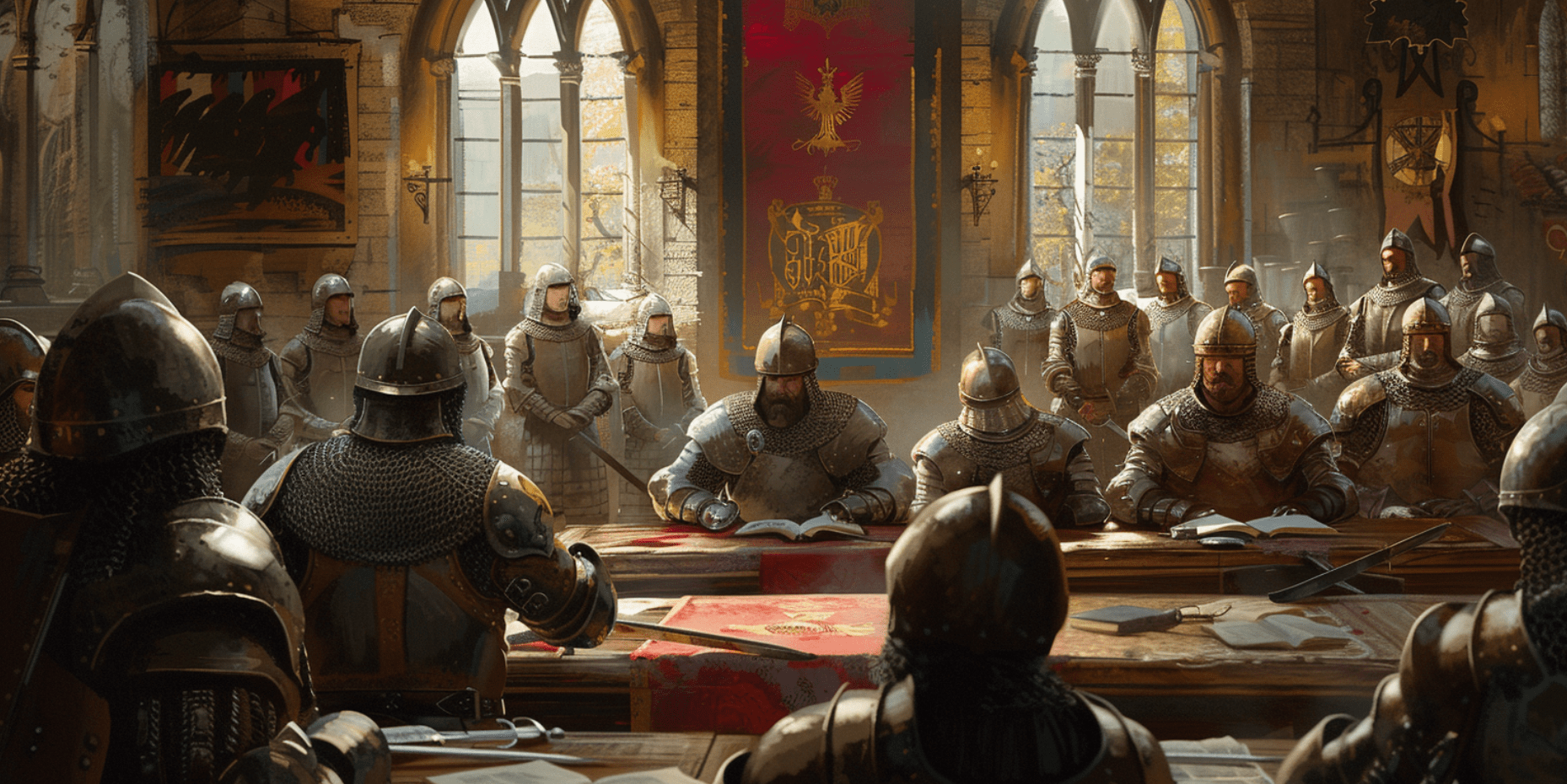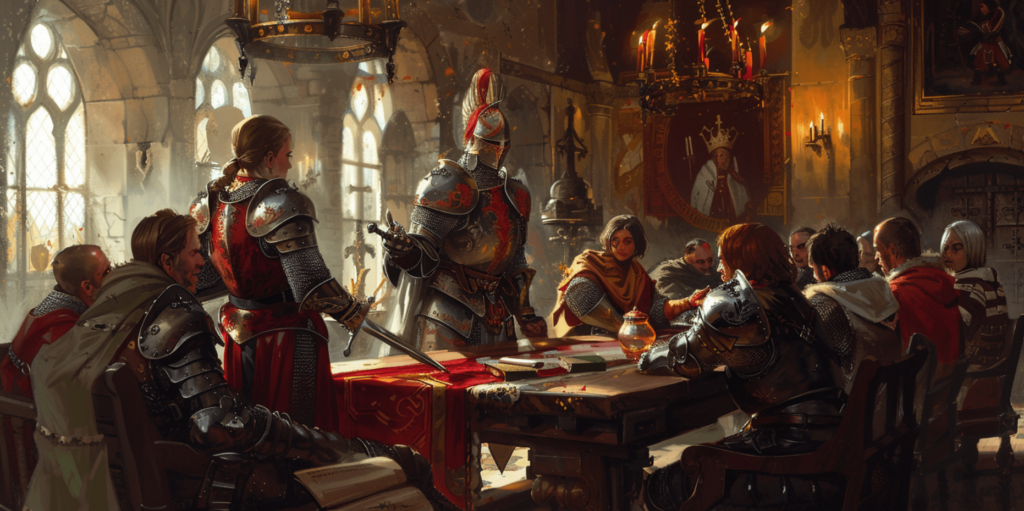In today’s fast-paced and technology-driven world, the values of chivalry and honor may seem like relics of the past. However, the principles embodied by knights of old – courage, integrity, and respect – remain as relevant as ever. By integrating lessons on chivalry and honor into the modern classroom, educators have the opportunity to instill timeless values in the next generation of leaders. This article explores the importance of teaching chivalry and honor in the modern age and offers practical strategies for incorporating these values into educational curricula. Also, if you are a student choosing their major, check out the top 10 college majors for your future!
Understanding Chivalry and Honor
Chivalry, rooted in the medieval code of conduct for knights, encompasses virtues such as courage, loyalty, honesty, and courtesy. It emphasizes the importance of protecting the weak, serving others with humility, and upholding moral principles even in the face of adversity. Honor, closely related to chivalry, refers to a deep sense of integrity, dignity, and ethical behavior. It involves keeping one’s word, acting with honesty and fairness, and standing up for what is right, regardless of personal consequences.
Relevance in the Modern World
While the concept of knights may conjure images of medieval battles and castles, the values they embodied are timeless and applicable to contemporary society. In today’s complex and interconnected world, chivalry and honor are essential for fostering positive relationships, promoting social harmony, and addressing ethical dilemmas. By teaching students the importance of integrity, empathy, and respect, educators empower them to become compassionate and responsible citizens capable of making ethical decisions and contributing positively to society.

Incorporating Chivalry and Honor into Education
Integrating lessons on chivalry and honor into educational curricula provides students with opportunities to develop essential life skills and character traits. Educators can incorporate these values into various subject areas, including history, literature, social studies, and character education. For example, studying medieval literature and historical accounts of knights allows students to explore the principles of chivalry in context, while discussing contemporary issues such as bullying and social justice encourages critical thinking and ethical reflection.
Promoting Character Development
Teaching chivalry and honor in the classroom goes beyond imparting knowledge; it is about promoting character development and fostering a culture of respect and empathy. Educators can use role-playing activities, group discussions, and service-learning projects to help students apply chivalric virtues in real-life situations. By engaging in acts of kindness, practicing empathy, and standing up against injustice, students learn to embody the values of chivalry and honor in their daily lives. The goal is to instill a sense of responsibility and integrity that will guide them in becoming compassionate and ethical individuals.
Empowering Future Leaders
In a world fraught with moral ambiguity and ethical challenges, the need for principled leaders who embody the values of chivalry and honor has never been greater. By equipping students with a strong moral compass and a sense of personal responsibility, educators prepare them to become ethical leaders who prioritize integrity, fairness, and service to others. Through mentorship, guidance, and positive role modeling, educators can inspire the next generation of knights to uphold the ideals of chivalry and honor in their personal and professional lives.
Challenges and Opportunities
While teaching chivalry and honor presents numerous opportunities for character development and ethical education, it also poses challenges. In an age marked by cynicism and skepticism, some may view these values as outdated or idealistic. However, by framing them within the context of personal integrity, social responsibility, and global citizenship, educators can demonstrate their relevance and significance in the modern world. Moreover, leveraging technology and multimedia platforms allows educators to reach a wider audience and engage students in innovative ways, making lessons on chivalry and honor more accessible and impactful. In case you are facing challenges with assignments, and find yourself asking “Is it possible to pay someone to do my homework?”, check out the link for answers!
Fostering Ethical Decision-Making
At its core, chivalry and honor serve as guiding principles for ethical decision-making, empowering individuals to navigate moral dilemmas with clarity and conviction. By immersing students in discussions on ethical scenarios and moral quandaries, educators encourage them to apply the principles of chivalry and honor to real-life situations. Through guided reflections and case studies, students learn to weigh competing values, consider the perspectives of others, and make principled choices aligned with their values and beliefs. This not only strengthens their ethical reasoning skills but also cultivates a heightened awareness of their responsibilities as ethical agents in society.
Cultivating Leadership Skills
Central to the concept of chivalry is the notion of service and leadership, wherein knights were entrusted with the noble task of protecting the vulnerable and upholding justice. Similarly, teaching chivalry and honor in the classroom cultivates leadership skills and fosters a sense of civic responsibility among students. By engaging in collaborative projects, community service initiatives, and leadership roles within the school environment, students learn to lead with integrity, empathy, and humility. They develop the confidence and resilience needed to tackle challenges head-on, inspire others through their actions, and effect positive change in their communities.
Embracing Diversity and Inclusion
In an increasingly diverse and multicultural society, promoting chivalry and honor requires an acknowledgment of the inherent dignity and worth of every individual, irrespective of their background or identity. Educators can use lessons on chivalry and honor as opportunities to celebrate diversity, foster inclusion, and combat prejudice and discrimination. By encouraging students to embrace empathy, respect, and tolerance, educators create inclusive learning environments where all students feel valued, supported, and empowered to contribute their unique perspectives and talents.
Fostering Resilience and Perseverance
Knights of old were renowned for their courage, resilience, and indomitable spirit in the face of adversity. Similarly, teaching chivalry and honor instills in students the virtues of resilience and perseverance, enabling them to overcome challenges and setbacks with grace and determination. Through experiential learning activities, such as obstacle courses, team-building exercises, and problem-solving challenges, students develop resilience muscles, learn to bounce back from failures, and emerge stronger and more resilient individuals.
Building Stronger Communities
At its essence, chivalry and honor emphasize the importance of serving others and contributing to the common good. By instilling these values in students, educators lay the groundwork for building stronger, more cohesive communities grounded in mutual respect and solidarity. Through service-learning projects, community outreach initiatives, and collaborative endeavors, students learn the value of giving back, supporting those in need, and working together towards shared goals. This fosters a sense of belonging and connectedness, empowering students to become active agents of positive change within their communities.
Preparing Global Citizens
In an era characterized by globalization and interconnectedness, the lessons of chivalry and honor extend beyond national borders, transcending cultural, geographical, and ideological boundaries. Educators have a unique opportunity to prepare students to become responsible global citizens capable of navigating the complexities of our interconnected world with integrity and compassion. By fostering an appreciation for diversity, promoting cross-cultural understanding, and instilling a sense of global stewardship, educators empower students to become advocates for peace, justice, and human rights on a global scale. Through their actions, students embody the principles of chivalry and honor, serving as ambassadors of goodwill and agents of positive change in an increasingly complex and interconnected world.
Conclusion
In conclusion, teaching chivalry and honor in the modern classroom is not just about preserving the traditions of the past; it is about preparing students to navigate the complexities of the present and shape the future with integrity and compassion. By instilling timeless values such as courage, integrity, and respect, educators empower students to become ethical leaders who uphold the principles of chivalry and honor in all aspects of their lives. As knights in the classroom, educators have the power to inspire a new generation of changemakers who will uphold the ideals of chivalry and honor in the pursuit of a more just and equitable society.

